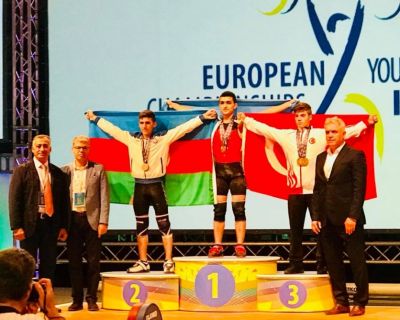Font size:


29.01.2013 12:09 | Readed: 2300

London-based journalist and head of media for the European Azerbaijan Society Emil Agazade`s article on response Harry Semerdjian has published in influential The Hill journal.
I am writing in response to the article by Harry Semerdjian “Christian Armenia and Islamic Iran: An unusual partnership explained”. While I welcome the author’s intention to be unbiased and balanced in his explanation of geopolitics of the South Caucasus, I sense that his valiant attempt did not quite come off.
Of course, it’s every nation’s prerogative and sovereign right to choose its friends and allies. Countries are also free to house foreign military bases on their soil and choose to be called someone’s outpost in the Caucasus. Justifying why you choose your friends is also normal part of diplomatic or political discourse.
But the discourse has to be fair and honest if it aims at bringing solutions and comes from an academic, not least the Oxford University aspirant. I value Semerdjian’s stating of the fact that Nagorno-Karabakh and the seven surrounding regions of Azerbaijan have been taken over by the Armenian forces. Alas, even acceptance of that sad reality is often a scarce commodity.
But there’s ‘taking over’ and there’s ‘taking over’. It would have been fairer on behalf of Semerdjian to add that there are four UN Security Council resolutions demanding withdrawal of Armenian forces that have been ignored for over twenty years. How many hours did it take for the Coalition to move against Colonel Gadhafi after the passing of the required resolution?
Surely, they study what late British foreign secretary Robin Cook dubbed ‘an ethical foreign policy’ at the Fletcher School of Law and Diplomacy. After all, it was a pillar on which British involvement in the Kosovo campaign and its stand against Slobodan Milosevic was based on. But yet again, it’s a nation’s sovereign right to apply that element of ethics in deciding to befriend pariahs or well-behaved nations, alike.
I am not going to disprove or even argue with what Harry referred to as several Armenian kingdoms in northern Iran. I will leave that to Iranian historians to deal with, as well as the region’s Assyrian and Nestorian Christian communities. Such anecdotes have long caused nothing but wry smiles amongst Georgians and Azerbaijanis. Although, it’s not at all funny when one of the Armenian presidential candidates – Vardan Sedrakian – promises his voters to annex parts of Azerbaijani, Turkish and Georgian territory if he wins next month’s elections.
I understand it demands a special effort to think outside of century-long prejudices and takes a certain type of courage to look at facts and accept reality, rather than form opinions or, God forbid, academic research based on what your granny in Glendale or New York may have told you. However painful that step may be, this will be necessary for a lasting peace in the South Caucasus, and in order to end Armenia’s isolation, that Harry understandably frets about.
Whether Harry sincerely believes in some of his arguments or not, his reasoning behind his appeal to leaders in Washington to be understanding of Armenia’s flirtation with a neighboring country is pretty clear. I would hate to resort to a classical quote, but in matters such as this no-one beats good old Francois de La Rochefoucauld who once proclaimed that we are so accustomed to disguise ourselves to others that, in the end, we become disguised to ourselves. I reckon Harry would have to do much better than what he said in his article to embark on and accomplish the Ph.D research at Oxford – and I only wish him success in his academic endeavors.
The author of this blog happened to be a duty editor of a political breakfast show on the morning following 9/11. One of the things that stuck in my mind from that long and eventful shift was when George W. Bush said ‘You’re either with us or against us’. I guess, not only because it was fairly unusual to hear such a Wild West rhetoric coming from a head of state.
Now, you may agree or disagree with the neo-conservatives’ understanding of the global war on terror, but I sense president Bush was right in that respect: there is a time in every man’s life or a nation’s history when you have to choose your side. Azerbaijan has chosen its side and has stuck with it. Armenia, on the other hand, as the Russian saying goes, is trying to sit on two chairs at the same time. It normally ends, as the same saying suggests, with falling down.
AzerTAc
© İstifadə edilərkən "Xalq qəzeti"nə istinad olunmalıdır.




















